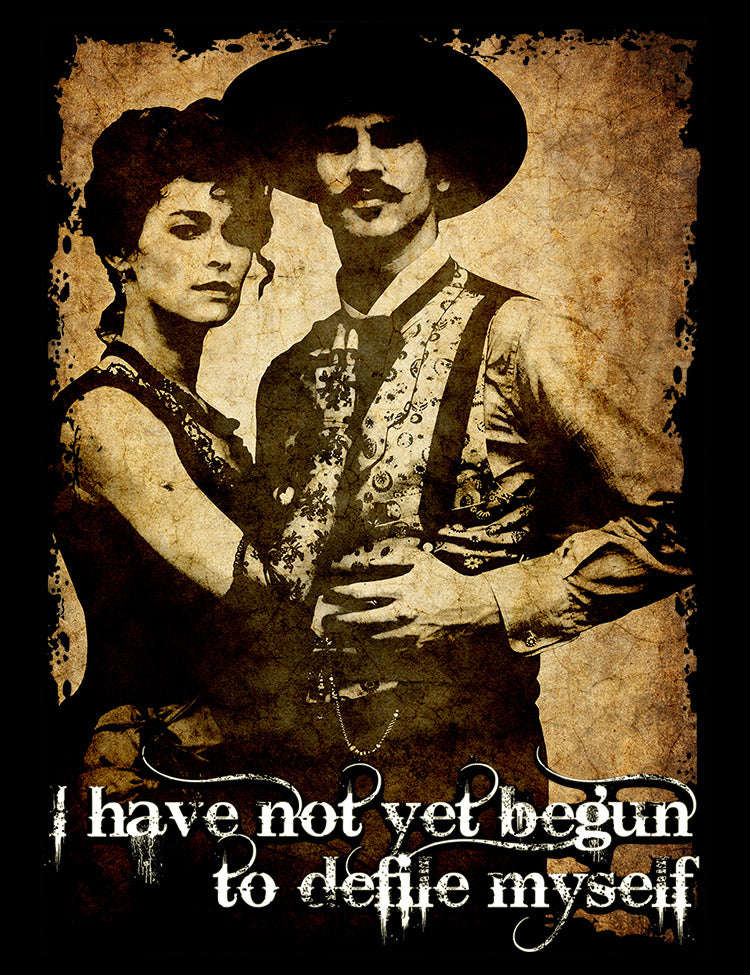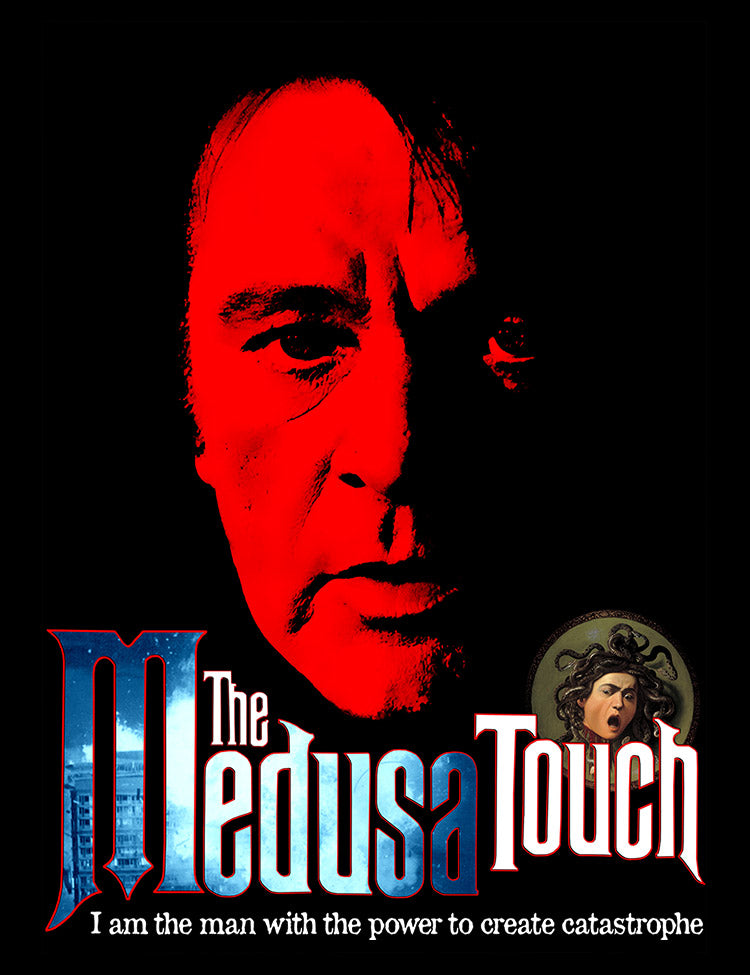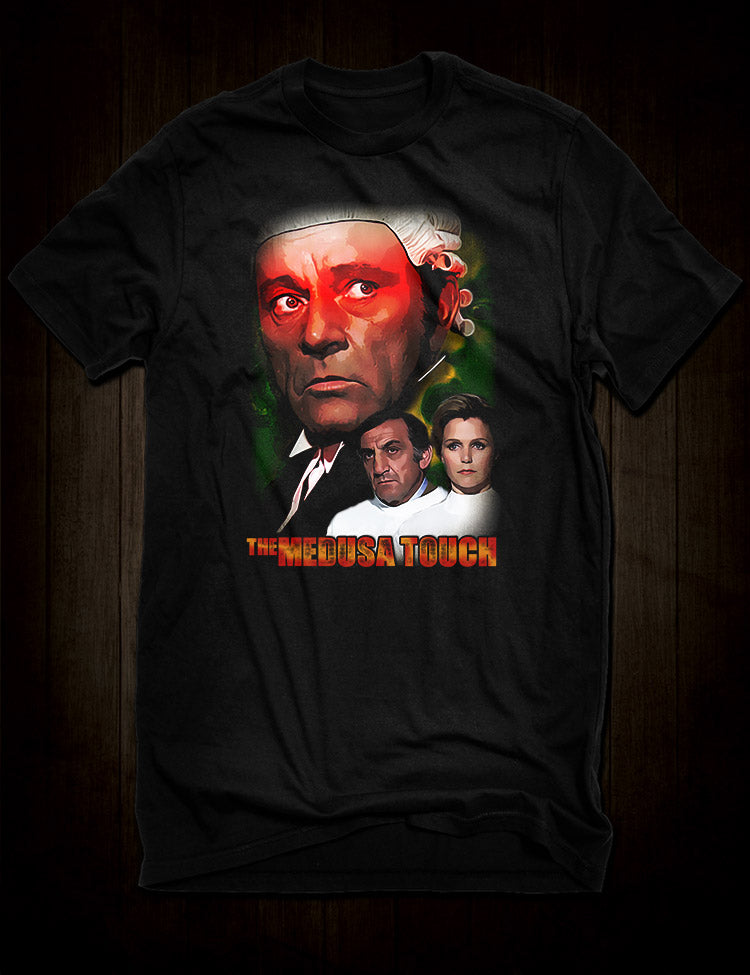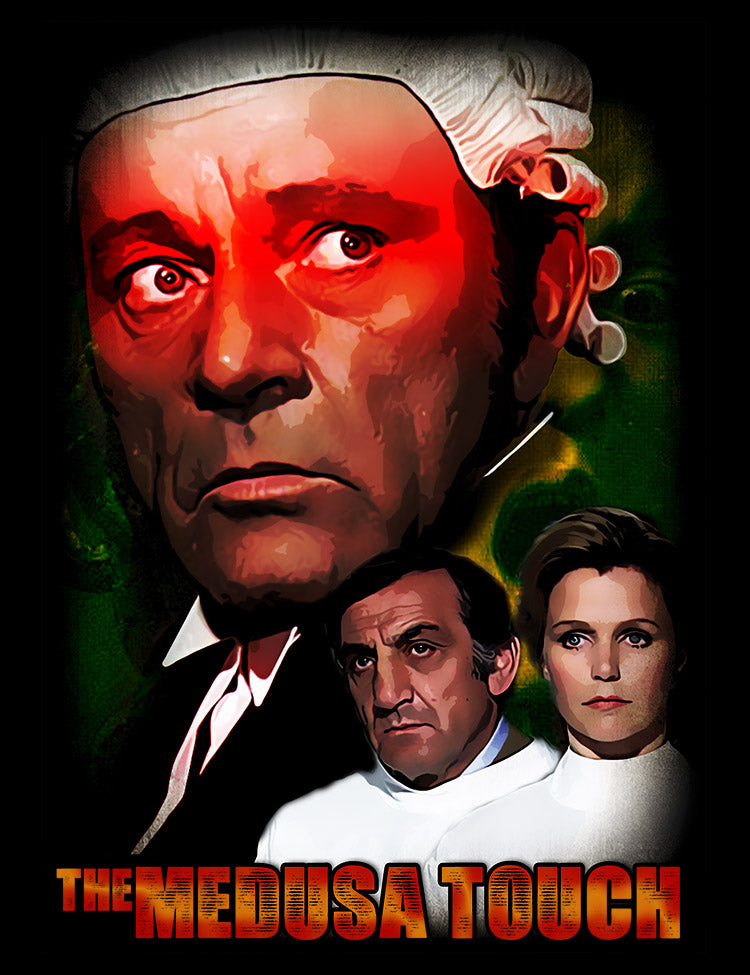
The Medusa Touch: Why This Forgotten British Horror Deserves a Revival
INTRODUCTION — “I Will Bring Down the Cathedral”
“I have the power to destroy.”
The words don’t come from a cape-cloaked supervillain or a demon whispering through a Ouija board—they come from John Morlar, a middle-aged British man strapped to a hospital bed, his face grotesquely battered, his body barely clinging to life. And yet, something still pulses behind his bruised eyes. Something terrible. Something godlike.
Released in 1978 and promptly filed away under “obscure,” The Medusa Touch is a slow-burning psychic scream of a film — a strange, sulphurous blend of psychological horror, political thriller, religious satire, and supernatural dread. It’s what would happen if Carrie wore a corduroy blazer and lived in Hampstead. If The Omen was less about the devil and more about the destructive will of man.
This is not just a ghost story. It's not even strictly a horror movie. It’s an existential tantrum — a metaphysical mystery that asks, "What if pure hatred could kill?" And more disturbingly, "What if that hatred was justified?"
In the age of reboots and retro-fitted nostalgia, there are films that deserve resurrection — not just for their eerie relevance, but because they still hold a mirror to our modern malaise. The Medusa Touch is one of them. Misunderstood in its time and largely forgotten since, it’s high time this cerebral British cult oddity was revived, reappraised, and rightfully revered.
Let’s dig it up. Let’s look it in the eyes. And let’s see if it blinks first.

I. The Forgotten Force: What The Medusa Touch Is
Before the opening credits finish rolling, The Medusa Touch delivers a jolt: a man is found savagely beaten in his apartment, presumed dead—until he isn’t. The victim is John Morlar, played with volcanic stillness by Richard Burton. Morlar is a novelist, a recluse, and—if you believe him—a human weapon. His claim? That he possesses a psychic power so potent, he can cause death and disaster with nothing more than concentrated thought. Earthquakes, plane crashes, political assassinations… all, he insists, at the mercy of his mind.
Set in a cold, grey London that feels as much spiritual purgatory as urban sprawl, The Medusa Touch unfolds through flashbacks, investigations, and confessions. A French detective, Brunel (played by Lino Ventura), tries to unravel the strange life of the half-dead man, piecing together a trail of destruction that may—or may not—be coincidence. Meanwhile, Morlar’s psychiatrist, played by Lee Remick, hints at deeper truths and darker secrets.
To classify The Medusa Touch as merely a 1970s British horror film does it a disservice. It's a cocktail of tones and tensions:
-
A murder mystery, where the victim might be the killer.
-
A political thriller, filled with critiques of government, war, and faith.
-
A supernatural horror, where the real terror isn’t ghosts or demons, but the human mind unleashed.
Think The Omen by way of Harold Pinter. Think Columbo with an Armageddon complex.
Despite being released at the tail end of a decade saturated with occult paranoia and disaster flicks, The Medusa Touch was never part of the horror hall of fame. It didn’t become a cult darling. It didn’t inspire a franchise. But its influence lingers like smoke in a burnt-out chapel. This is one of those underrated horror movies that time forgot—not because it failed, but because it dared to be too many things at once.
And now, in an era where apocalyptic thinking and institutional collapse are back on the menu, its time may finally have come.

II. The Power of Burton: Casting, Performance, and Presence
Richard Burton doesn’t just play John Morlar — he haunts him.
By the late 1970s, Burton’s once-glamorous stardom had given way to something grizzled and worn, his matinee idol looks smudged by decades of hard living, failed marriages, and tabloid spectacle. It’s precisely this weathered grandeur that makes him so terrifyingly perfect for The Medusa Touch. Burton doesn’t need special effects to suggest psychic power — he is the special effect.
From the moment he appears, Burton’s Morlar exudes the kind of quiet, simmering intensity that feels radioactive. His voice is a low growl of contempt — for the government, the church, the courts, the world. His eyes burn with a hatred so potent, it seems to curdle the very air. There’s no scenery chewing here. Just razor-sharp delivery, tightly coiled rage, and the unmistakable air of a man who knows he can bring buildings down with his mind — and wants to.
What makes the performance so unsettling is how much of Burton the man seems to be bleeding through. His real-life disillusionment with fame, politics, and religion finds eerie echoes in Morlar’s seething monologues. There’s intellect, arrogance, world-weariness, and a bitter kind of grandeur. You’re never quite sure if you’re watching a man unravel — or simply a man who's always known too much.
But The Medusa Touch isn’t a one-man show. Opposite Burton is French actor Lino Ventura as Inspector Brunel — calm, skeptical, and beautifully grounded. Ventura’s understated performance provides the necessary ballast to Burton’s storm. He doesn’t believe in telekinesis. He doesn’t believe in madness as magic. But the deeper he digs into Morlar’s past, the more cracks he begins to see in the rational world.
Then there’s Lee Remick as Dr. Zonfeld, Morlar’s psychiatrist and reluctant confidante. Elegant and guarded, Remick’s presence adds a complex layer of empathy to the film’s bleak emotional landscape. She walks a tightrope between clinical detachment and repressed horror — hinting at a fascination with Morlar that may border on complicity.
Together, the trio forms a perfect dramatic triangle:
-
Burton, the ticking time bomb.
-
Ventura, the disbelieving investigator.
-
Remick, the keeper of secrets.
It’s this dynamic — crackling with tension, intellect, and moral ambiguity — that gives The Medusa Touch its strange gravity. You don’t watch this film for jump scares or gore. You watch it because you want to see what happens when a broken genius stares down a broken world and decides to push it over the edge.
And with Burton at the centre? You believe he could do it.

III. Premonitions and Punishment: The Film’s Themes
At its core, The Medusa Touch isn’t about psychic powers — it’s about psychic pressure. John Morlar isn’t just a man who believes his thoughts can kill; he’s a manifestation of what happens when internal fury becomes external force. His abilities are never explained, never reduced to pseudoscientific babble. Instead, they function as metaphor — for rage that simmers, repression that rots, and revenge that metastasizes into something apocalyptic.
This is a film that sees madness not as a breakdown, but as a form of lucidity.
Beneath the surface, The Medusa Touch seethes with contempt for institutions. Morlar’s enemies are not monsters or demons — they are judges, politicians, priests. He sees corruption in the courtroom, hypocrisy in the pulpit, and cowardice in Parliament. His psychic terrorism becomes a violent reckoning: one man waging holy war against the systems that failed him. It’s the individual versus the establishment, framed not with banners and protests, but with falling monuments and burning bodies.
There’s also a chilling meditation on fate and the horror of thought itself. Morlar is consumed by guilt and suspicion — does he cause tragedy, or merely foresee it? If you believe a disaster will happen, and it does… are you guilty of causing it? Or of failing to stop it? The film never offers easy answers. It swims in ambiguity, in the moral murk of a mind that may be both judge and executioner.
And then there’s the wider social context. Released in a Britain reeling from post-60s disillusionment — economic decline, political unrest, IRA bombings, and nuclear anxiety — The Medusa Touch taps directly into the national nervous system. Its depiction of random catastrophe, of everyday civility cracking open to reveal chaos, feels eerily in step with an era haunted by the fear that the world was not only ending — but deserved to.
In that way, Morlar becomes more than a man. He’s a psychic embodiment of apocalyptic karma. He is what happens when outrage finds no outlet but implosion.

IV. Cathedrals and Collapse: The Iconic Set-Pieces
You don’t forget the moment the cathedral falls.
It starts innocently enough: a crowd of dignitaries and churchgoers gathered beneath the towering stone of London’s most sacred architecture. A royal figure steps up to speak. The choir sings. And then… it happens. Cracks in the ceiling. Stone trembling. Panic. The sacred collapses. A cathedral — centuries of history and belief — reduced to rubble in seconds.
This is The Medusa Touch at its most operatic. A film that is, for much of its runtime, brooding and cerebral, suddenly explodes into jaw-dropping spectacle.
Earlier, there’s a scene just as unnerving, if less visually grand: a commercial airliner nosediving into a skyscraper, its fuselage shearing through glass and steel like a scythe. In an age before 9/11, this imagery felt extreme. Today, it feels prescient. But even now, decades later, both sequences retain a terrible, tactile power.
What makes these scenes endure isn’t CGI bombast — it’s the brutal realism of practical effects. These were built, not animated. Models crumble, not pixels. You can feel the weight of stone. You hear the shriek of metal and the rumble of dust. There’s no sleek choreography here — just chaos. Dirty, clumsy, believable chaos.
And because the violence isn’t framed as catharsis or heroism — but as something almost sacred in its dread — it lingers longer than most horror movie bloodbaths.
The destruction in The Medusa Touch isn’t thrilling. It’s punishing. The kind of destruction that feels like divine judgment… except the divine is just a man in a hospital bed, thinking.
In these moments, the film stops being a curious horror hybrid and becomes something more elemental — a prophecy rendered in falling bricks and screaming crowds. And for a forgotten 1970s British horror film, that’s a hell of a flex.

V. Aesthetics of Dread: Visual and Tonal Mastery
Visually, The Medusa Touch is a film draped in fog and shadow, stone and silence. London has rarely looked so alienating — not in a fantastical, gothic sense, but in the sterile, bureaucratic coldness of modern architecture and beige offices. The city becomes a reflection of John Morlar’s psyche: concrete, impersonal, quietly seething.
Every location is rendered with a kind of emotional frostbite. Morlar’s flat is sparsely furnished, his psychiatrist’s office claustrophobic despite its size. Even the cathedral — that supposed beacon of spiritual comfort — is shot with a detachment that makes it feel like a tomb. There’s no warmth in this world. No colour. No comfort. Just the quiet hum of restrained horror.
Cinematographer Arthur Ibbetson (Anne of the Thousand Days, Willy Wonka & the Chocolate Factory) trades lushness for austerity. His camera lingers too long. It holds at odd angles. It creates unease not through what it shows, but what it refuses to. Much like Morlar himself, the film is calm on the surface and volcanic underneath.
And then there’s the sound — or often, the lack of it. The Medusa Touch weaponizes silence like a scalpel. Key scenes play out with minimal score, letting the ambient dread seep in: the buzz of fluorescent lights, the faint ticking of a clock, the dull roar of a city just waiting to be broken.
When Richard Burton speaks, it’s with a voice that slices through this quiet like a sermon at a funeral. His dialogue is rich with venom and gravitas, delivered like scripture rewritten by someone who’s lost faith but not fury. Every word feels like it could crack the walls.
The result is a sensory paradox: a film that looks emotionally flat but feels emotionally volcanic. A study in dread not just as theme, but as aesthetic. The kind of horror that doesn't scream at you — it stares.

VI. Ahead of Its Time: Why It Resonates in 2025
Watch The Medusa Touch today and you’ll feel it twitching beneath your skin. Not just because of its eerie predictions — airline disasters, attacks on religious institutions, apocalyptic paranoia — but because its emotional landscape maps so cleanly onto our current one.
Let’s start with mistrust in institutions. Morlar’s targets are pointed: the judiciary, the media, the government, organized religion. He doesn’t attack strangers at random — he attacks symbols of authority. He sees systems as inherently broken, and in that, he mirrors a 2025 reality of political corruption, media fatigue, and collapsing public faith.
There’s also the matter of rage and alienation. Morlar is a man so filled with contempt for the world that it’s eating him alive — literally, as his own mind destroys the body it’s trapped in. He’s a prophet for the disillusioned, the disenfranchised, the emotionally exhausted. His inner torment is all too familiar in a world where anxiety and burnout have become default settings.
And then, of course, there’s the concept of the mind as a weapon. In a post-digital age obsessed with brain hacks, neuromarketing, and psychological warfare, Morlar’s “power” feels less supernatural and more like a logical endpoint. He doesn’t cast spells. He thinks things into being. He is, in essence, an algorithm of destruction — and in an era obsessed with mental health, cognitive influence, and viral rage, that’s more terrifying than any ghost or demon.
You could slot The Medusa Touch between an episode of Black Mirror and a screening of Hereditary and no one would blink. Its meditations on guilt, belief, power, and suppressed trauma feel spiritually aligned with The Babadook. Its clinical tone and moral ambiguity would fit in perfectly with the A24 horror canon.
But perhaps most chillingly, The Medusa Touch doesn’t offer catharsis. No neat resolution. No vanquished evil. It ends with a suggestion — a whisper that the worst is yet to come.
And isn’t that just so now?

VII. Why It Vanished — And Why It’s Time to Bring It Back
So how does a film like The Medusa Touch—with Richard Burton at the helm, psychic destruction, and a literal cathedral collapse—get left out of the horror conversation?
Part of the answer is genre confusion. It’s not quite horror. Not quite mystery. Not quite thriller. It occupies that strange liminal space British cinema once did so well: cerebral, bleak, slow-burning, and hard to market. There’s no obvious villain. No final girl. No clear moral lesson. And audiences who came for The Omen-style satanic flair were instead given a moody philosophical takedown of modernity.
Then there’s timing. Released in 1978, it arrived just as horror was shifting gears. The supernatural paranoia of the early '70s was giving way to the visceral slashers of the '80s. Halloween was already lurking in the shadows, and the appetite for brooding, talky, symbol-heavy stories was waning.
And yes, Burton’s fading star may have dimmed its spotlight. By this point, he was seen more as a relic than a draw—a Shakespearean ghost with booze in his bloodstream and scandal on his heels. Audiences weren’t eager to see him rage against the world; they were too busy watching younger stars scream in it.
But make no mistake: its disappearance was not deserved. It wasn’t earned. It was a cultural sleight-of-hand. The Medusa Touch was left behind not because it failed — but because it asked questions no one wanted to answer.
Today, those questions are impossible to ignore. And this lost gem is more than ready for rediscovery.

VIII. Cult Classic or Canonical? A Case for Revival
Let’s be clear: The Medusa Touch isn’t just cult-worthy—it’s canon-adjacent.
It belongs in the same breath as The Wicker Man, Don’t Look Now, and The Innocents—those British horror films that dare to be slow, smart, and spiritually terrifying. It’s a psychic cousin to Carrie and Scanners, a philosophical uncle to Black Mirror, and a great-grandfather to today’s elevated horror. The only thing it lacks is the attention.
This is a film tailor-made for horror cinephiles, especially those drawn to esoteric terror, psychological narratives, and unconventional structure. It’s for fans of British cinema with a taste for darkness, and for those who prefer their horror with a spoonful of existential dread rather than a bucket of blood.
A full-blown re-release — remastered in high definition, given a Criterion-style essay treatment, and spotlighted in genre retrospectives — would be a revelation. A limited run in arthouse cinemas. A Shudder exclusive. A fresh wave of reviews from today’s tastemakers who will finally see what the film was really doing.
And when they do? The Medusa Touch won’t just be a curiosity. It’ll be a revelation.

IX. Where to Watch and What to Read Next
As of now, The Medusa Touch can be tracked down on DVD and Blu-ray from various distributors — though availability fluctuates wildly. Look for the StudioCanal edition in the UK or the Twilight Time limited edition release in the US if you can find it.
For streaming, check specialty services like Shudder, MUBI, or Arrow Player, where underseen gems often get new life. Failing that, it’s worth hunting through secondhand stores or digital marketplaces for a physical copy — it deserves a proper place on your shelf.
To go deeper, pair the film with reading that enriches its context:
-
The British Horror Film by Ian Fryer – for the landscape of post-war horror.
-
Cult Cinema: An Introduction by Ernest Mathijs & Jamie Sexton – for understanding the cult status it never quite achieved.
-
The Richard Burton DIaries – a confessional look at the man whose haunted gravitas defines the film.
-
Nightmare Movies by Kim Newman – for how The Medusa Touch fits into the wider tapestry of psychological horror.
It’s a story that lives best when it’s passed on.

X. Conclusion — “He’s Still Alive… Somewhere.”
In the film’s final moments, as the dust settles and the authorities breathe their sighs of relief, a whisper lingers.
He’s still alive. Somewhere.
It’s not just a plot twist. It’s a prophecy. Because The Medusa Touch has been buried, yes — under decades of obscurity, under the rubble of mislabelled genres and forgotten names — but it never really died. It simply waited. Smouldering. Watching. Thinking.
Now is the time to bring it back.
In an age obsessed with content that bites, shocks, or screams, this film thinks. And that’s far more dangerous. It’s a psychic scream dressed in tweed. A sermon for the damned. A final warning delivered by a dying man who might be God—or worse.
So go watch it. Tell others. Spread the thought.
Let The Medusa Touch think again.

















